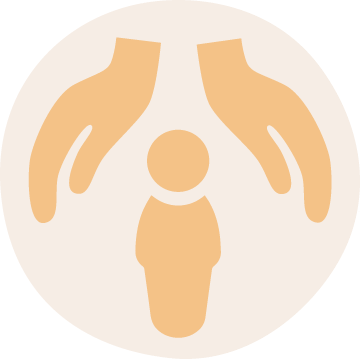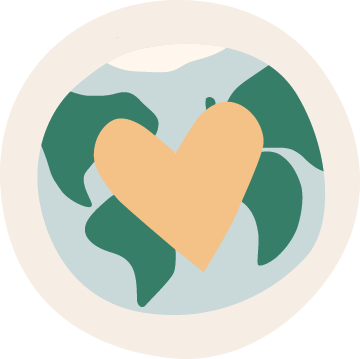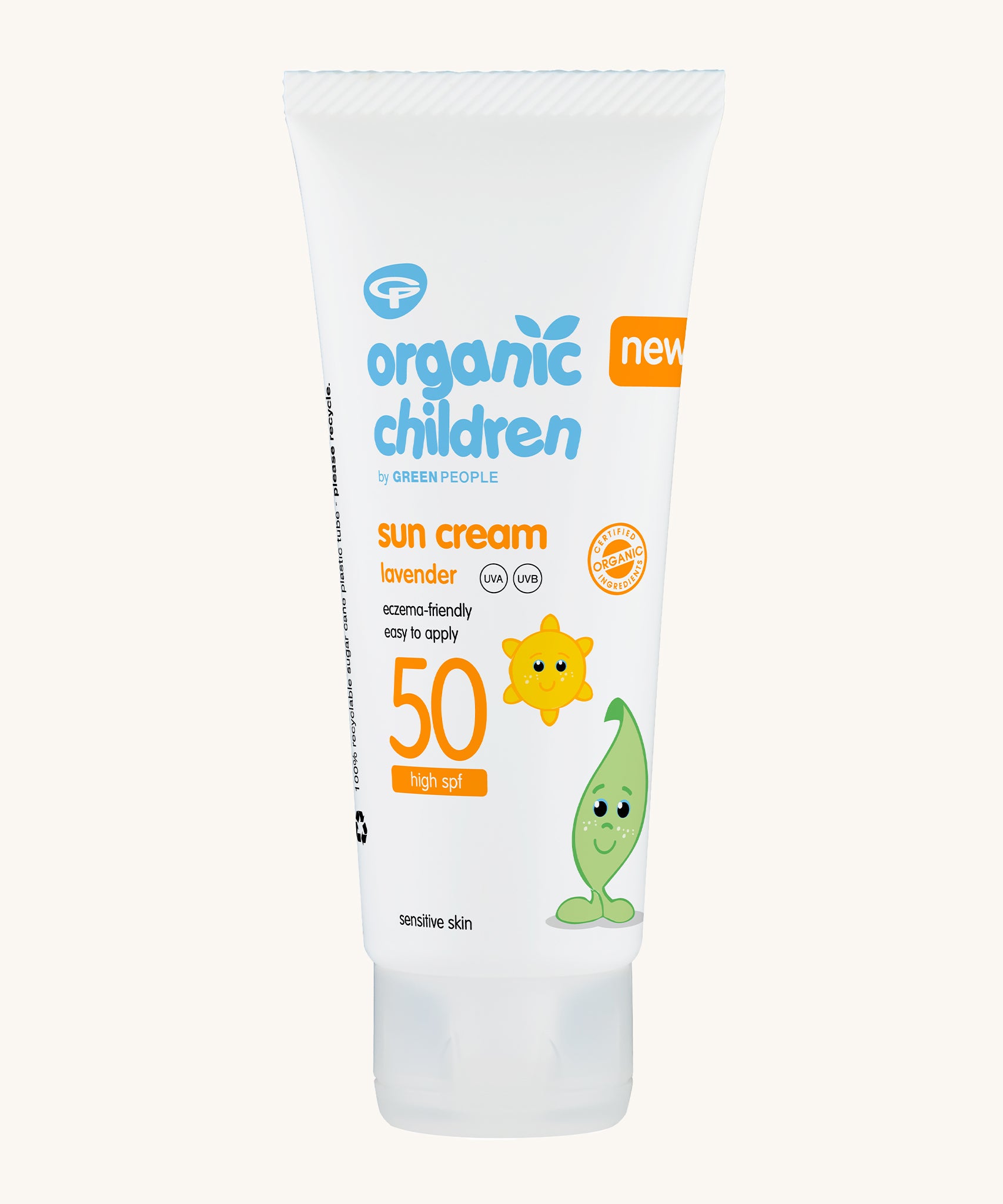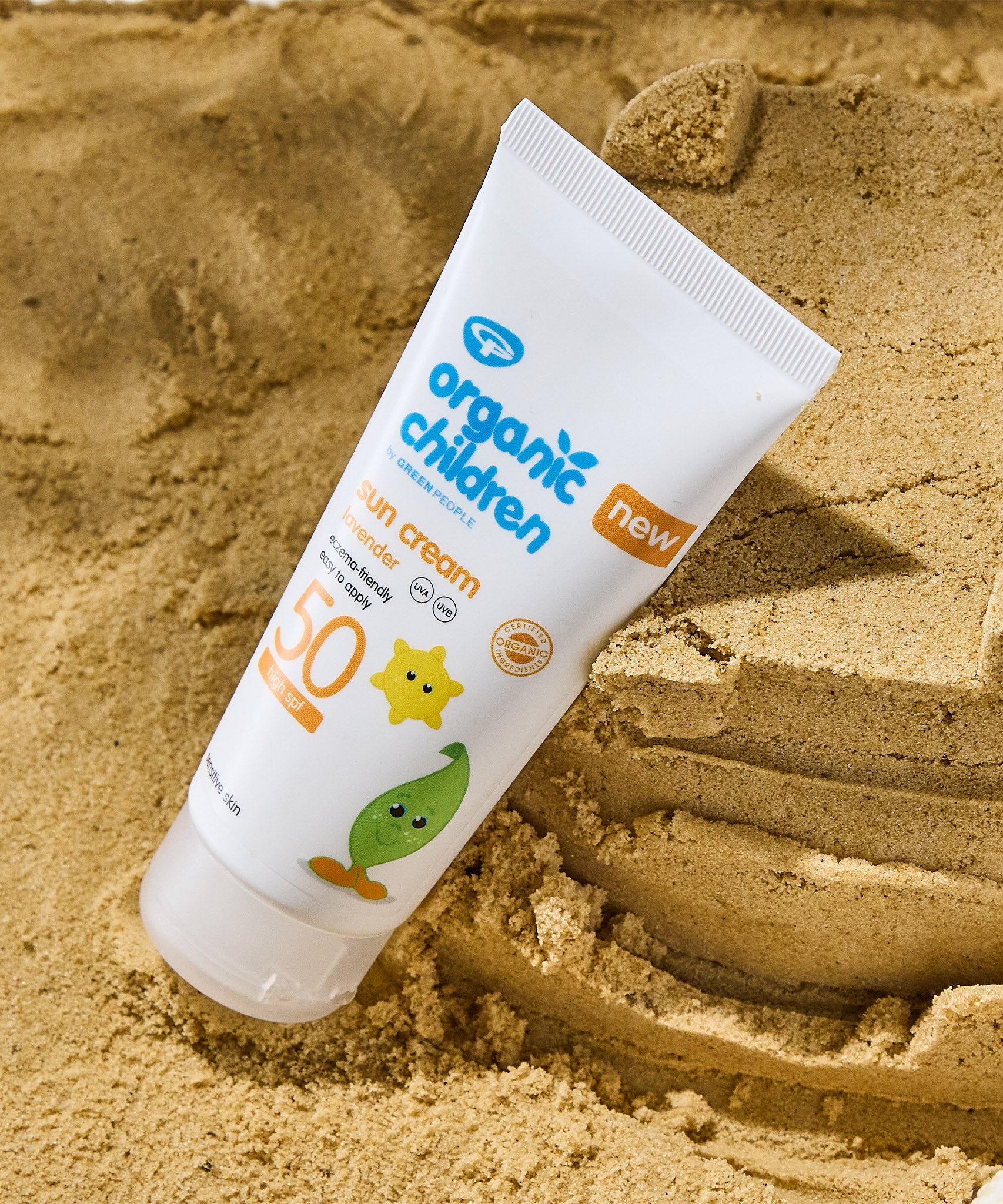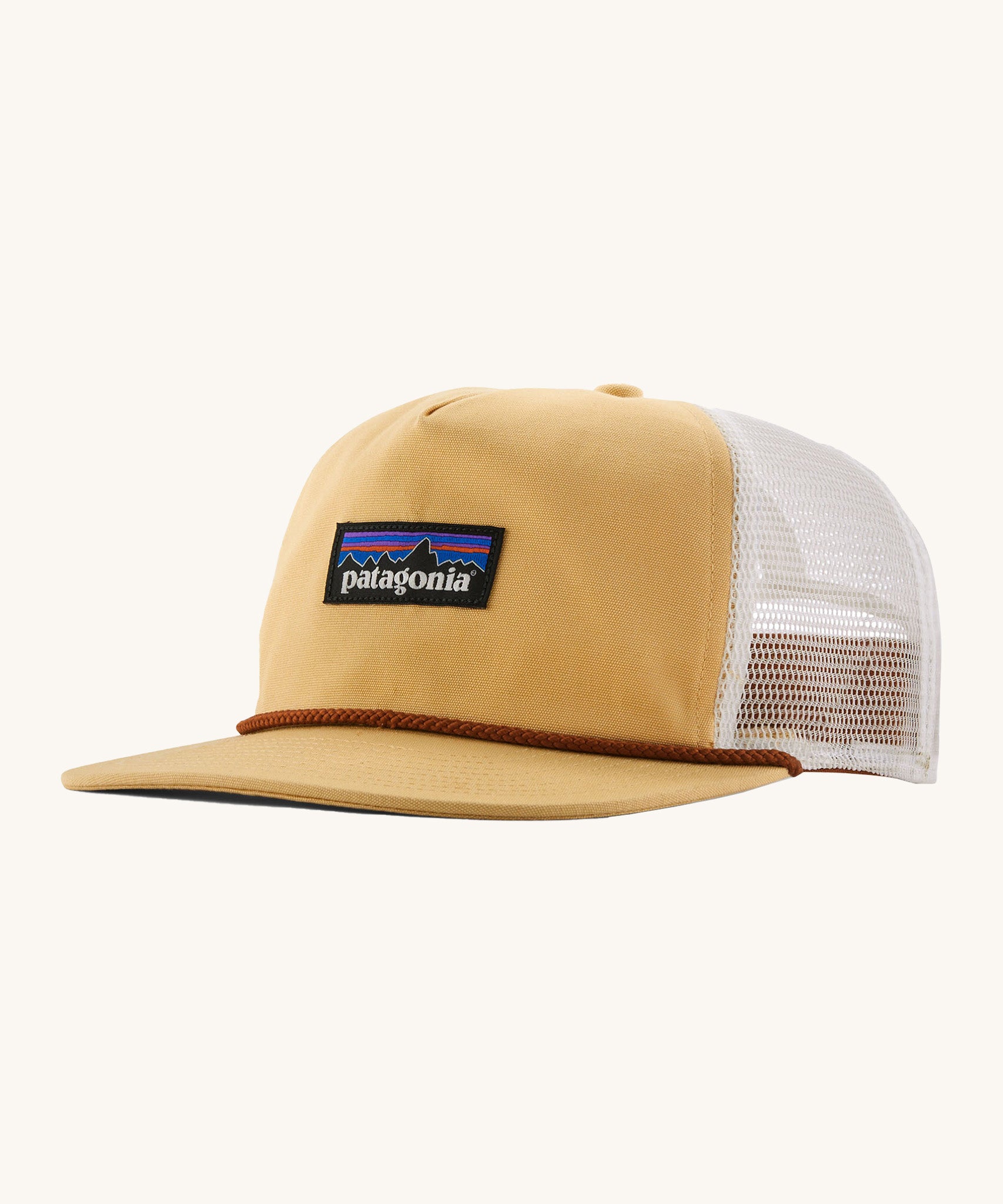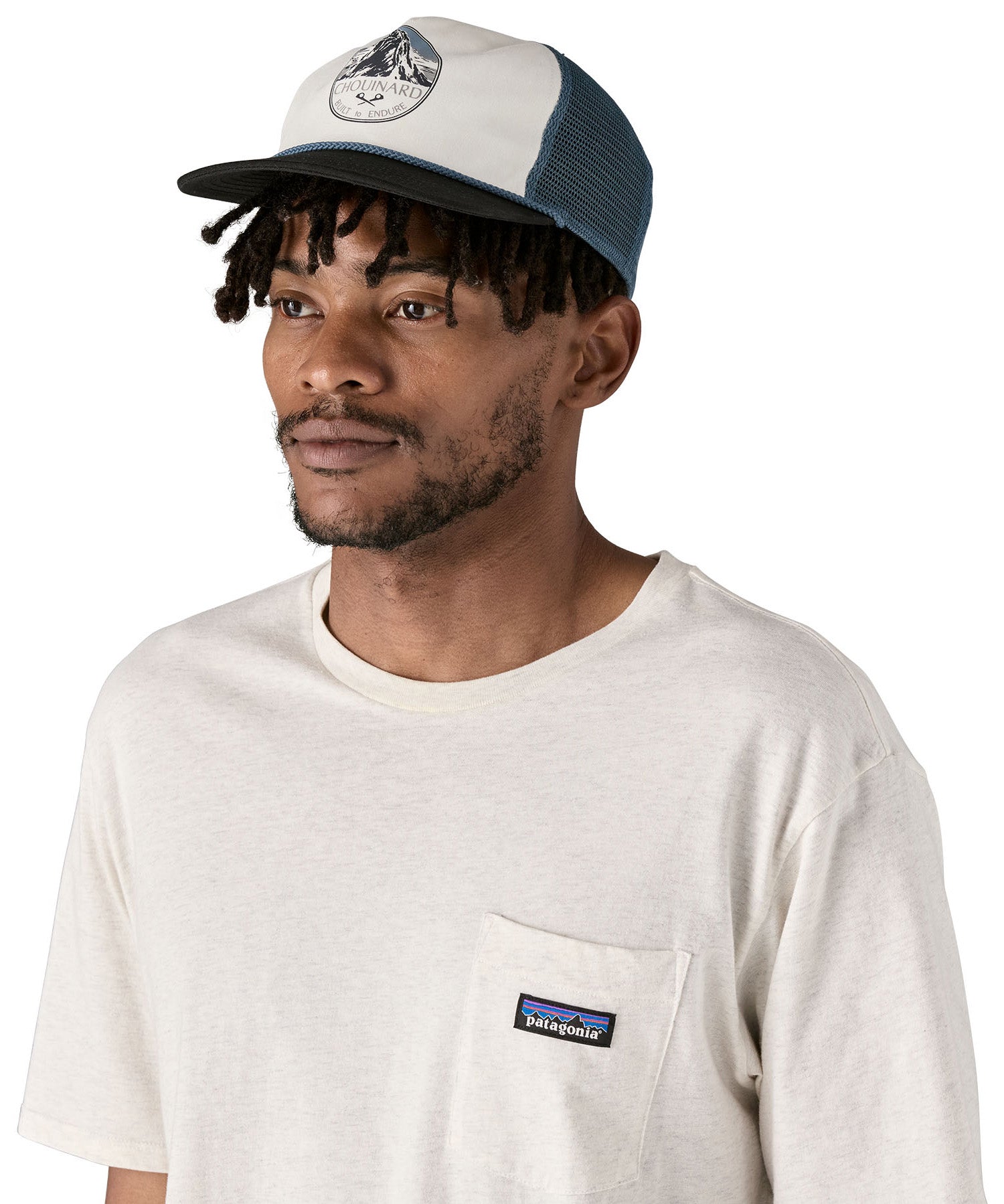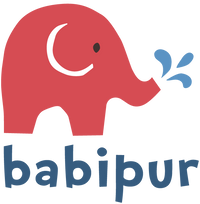Guppyfriend Washing Bag
When you wash synthetic, polyester clothing tiny fragments come off and when they get into the waterways, they are harmful to fish and marine creatures who swallow them. You can stop micro plastics from your laundry from entering rivers and the ocean with a Guppyfriend wash bag. A Guppyfriend is really easy to use - pop your synthetics in, zip up and put it in the wash with the rest of your laundry. When the cycle has finished, open up the bag, take out your wet clothes and shake the microplastics inside your Guppyfriend into the bin.
You'll find that the Guppyfriend helps to reduce the wear and tear on your laundry too - hurrah! Using a Guppyfriend brings home the importance of wearing clothes made with natural fibres, just like the eco-friendly, organic cotton clothes we sell at Babipur. But for those occasions where the performance of synthetic fibres is more desirable then Guppy friend offers a solution.
The Guppyfriend measures 50 x 74cm
The Guppyfriend is an easy way to reduce your impact on the environment and protect our seas and marine life. Profits from the sale of Guppyfriend bags support the work of STOP! Micro Waste - a non-profit organisation that works to raise awareness of the harm micro plastics cause in our oceans, work on practical solutions to the problem, and conduct scientific research.
Scroll down for a FAQ's and instructions
What material is the Guppyfriend made of and is it recycable?
Apart from the zipper the bag is made using untreated Polyester (PET). The material is untreated, undyed, and does not contain any additives. It’s pure and can even be used in a medical context.
Recycled material doesn’t work (yet) for this kind of high-tech mesh. But the washing bag is designed so it can easily be recycled with identical materials at the end of its lifecycle: The whole bag – except the zipper – is made of a single material.
Does the Guppyfriend filter out PFCs (perfluorocarbons) and other water-repellent agents?
Unfortunately, most of the PFCs used to impregnate textiles are water-soluble. Consequently, they cannot be filtered out. If possible, always purchase garments without PFCs.
How does the bag also hold fibers that are even smaller than the tiny openings?
The diameter of a thread is as small as 15μm (μm = microns, 1mm = 1,000 μm). It could theoretically slip through the tiny openings of the GUPPYFRIEND bag. But it doesn’t. To get through, it would need to poke directly through the mesh. Even if it sticks out, the fiber will be pushed back inside the bag.
How many fibers break less when using the Guppyfriend washing bag?
As a part of a test program, the Fraunhofer Institute UMSICHT has confirmed that the Guppyfriend washing bag not only reliably retains microfibers, but also protects the textiles: Compared to washing without the Guppyfriend, 86% fewer fibers shed from synthetic textiles.
These are the applied washing conditions:
40° C, 99 min, 800 rpm
Parallel washing cycles in two identical machines, at least 3 test repetitions for calculating the average of the value measured (mean).
Use of synthetic clothing duplicates
Filtration of the entire wash water via sieving cascade to 20 microns
Drying of the laundry and the screen residue in moderate conditions (30°C, circulating air, cover)
Before and after weighing of the textiles and sieve residue to determine the respective textile abrasion
Does the Washing Bag have an impact on the other clothes in the washing machine?
No. Do your laundry as you would do it without the washing bag. For example, a dark-colored shirt inside the bag with whites outside the bag doesn’t make sense. The washing bag doesn’t change that.
If so many fibers do not break in the first place, you will find less of the already tiny microfibers in the corners of the Gupyyfriend washing bag. However, the lifetime of the clothings are extended. Our preferred plastic fibers are those that do not shed at all. Further tests are taking place and a scientific publication on this test series is in the planning stage.
What are you doing with the profits resulting from your sales?
Profits are reinvested in further activities to address the microwaste problem and to avoid single-use plastics.
We already take action to reduce microwaste and hope to extend the scope of the following activities:
Inform about microplastic pollution: What can be done to reduce microwaste above and beyond the Guppyfriend?
Accelerate re-engineering of textiles: With our countless and on-going washing tests, we receive and share valuable information on how to improve garments to reduce microfiber shedding.
Extend our STOP! Plastic Academy lectures on how to avoid microwaste and single-use plastics.
Initiate local activities -so called STOP! Stations- to actively reduce (micro)plastic pollution
Research for innovative, pragmatic solutions to reduce microfiber-pollution.
Who tested the bag and what are the results?
The bag was tested for a period of three years by scientific institutes, universities, representatives of the outdoor- and fashion industry and retailers. These tests serve as a basis for offering the Guppyfriend Washing Bag to their clients as a temporary solution for micro plastic pollution. Mainly, we have tested the Washing Bag with the following scientific and independent institutes:
German Textile Research Institute, DTNW
Fraunhofer Institut UMSICHT
University of California in Santa Barbara as part of a Patagonia research program
WHAT ARE THE RESULTS
The Guppyfriend washing bag reduces fiber loss during washing in two ways:
The Guppyfriend Washing Bag reduces the amount of breaking fibers significantly. The Fraunhofer Institute UMSICHT has confirmed an average amount of a) 79% for partly synthetic clothes, b) 86% from completely synthetic textiles. The lifetime of the apparel is extended.
Fibrous residues and lints caused by washing are retained by the Guppyfriend and therefore do not pollute the waste water. The determined fiber retention capacity in all test was above 90%, -mostly close to 100%. Nanoparticles, like production residues, often found on cheaper textiles can not be hold back by the Guppyfriend Washing Bag.
FURTHER TEST RESULTS
No toxic additives or harmful substances where found on the product.
Even after 50 washing cycles the bag and all seams are intact (ISO 6330). The bag itself does not lose any synthetic fibers (the Guppyfriend Washing Bag can be used for more than the tested 50 washing cycles when applied correctly)
Cleanliness after washing: blood, ketchup and chocolate could be washed out properly, the washing degree towards skin fat and clay is sufficient.
The amount of fibers that are found in the bag depends on washing conditions and clothing itself
TO SUM UP
The Guppyfriend reduces the fibers breaking significantly, those fibers that do break are hold back reliably, the clothes get clean and -if correctly applied- the Guppyfriend keeps harmful microplastic from entering our rivers and oceans for a long time.
Does the Guppyfriend Washing Bag lose microfibers itself?
The mesh is made out of monofilaments, which are more like sticks than threads, and thus does not release fibers itself. On rare occasions, depending on the mechanical condition of your washing machine, the binding tape around the bag may release a few fibers. The binding tape’s total surface is 0.05m2 and about 100 times smaller than the textiles inside. A washing bag filled with three fleece jackets has an approximate potential fiber-losing surface of 1,9m2 (inside and outside). We are working on alternatives, but we have accepted this compromise at the moment because it extends the overall lifetime of the bag. We constantly test and improve the overall quality of the bag itself and its washing and stability performance.
USE
What do I have to consider when using the Guppyfriend Washing Bag?
Do not put the bag into the tumble dryer
Do not rinse under running water
Wash only clothes of similar colors together in the bag
Anything sharp may harm the material of the bag
Do not iron (the crumpled surface is not a problem)
Use only liquid detergents
Do not dry in the sun
Remove coarse dirt and animal hair before washing
How do I put my Guppyfriend into the washing machine most efficient?
Wash together with other Guppyfriends or with nonsynthetic textiles to avoid an unbalance
Do not overfill – the clothes need space to move inside the bag
Back to Top
Can I put the Guppyfriend into a tumble dryer?
No. When there is no water in the bag, the material becomes statically charged. The electrostatic reaction of round plastic material (in this case the garment and the round nylon monofilament of the Guppyfriend) creates a magnetic field that exactly does what shouldn´t happen to the filter mesh and shed fibers: the small broken fibers are heavily attracted and orientate towards the mesh surface in a 90 degree angle. As a consequence they go straight through the mesh. When there is water in and around the bag the shed fibers lay in various angles on the mesh and don’t puncture it.
What kind of apparel needs to go into the Guppyfriend washing bag?
Every textile loses microfibers, but it is the synthetic materials (polyester, acrylic, nylon, etc.) that shed the harmful fibers. Most apparel contains synthetic fibers to some degree (unfortunately, sometimes it is not stated on the label).
You can also put pure cotton and wool inside the bag. Textiles from natural materials also lose fibers. The bag reduces fiber breakage and thus protects your garments and reduces wear and tear. You’ll enjoy your clothes much longer – another sustainability benefit of the Guppfriend Washing Bag.
Do I have to remove the microfibers after each wash?
No. Depending on what you wash it may take a couple of washes until you find fibers in the upper corners of your bag. (also see: What causes the breaking of microfibers?). Older apparel has the tendency to lose more fibers. The hotter your water, the more likely you’ll lose fibers. And if you only wash soft fabrics, fewer microfibers will break, etc. Whenever you see fibers, take them out, but you can certainly use the washing bag several times before removing the fibers. Make sure that there are no dark microfibers left in the bag when you wash clothes with lighter colors.
Guppyfriend consumers contacted us because they found very few fibers. This is because the microfibers are extremely tiny and barely visible to the naked eye. And that is part of what the bag does (see also: Who tested the bag and what are the results? ): Due to its soft surface and the structure of the filament, fewer fibers actually break.
How often can I use the washing bag?
Certainly, it depends on how you treat it: Use liquid detergent preferably, avoid zippers and any other edges, avoid direct sunlight and don’t wash it above 95°C/ 203°F, and you’ll enjoy the washing bag for many washing cycles. After a few washes, the washing bag doesn’t look new anymore, but still does its job perfectly.
I hardly find any fibers in the bag. What am I doing wrong?
The Guppyfriend Washing Bag was designed to reduce microfiber loss at the source. The structure of the filter surface is optimized to achieve the smoothest surface possible, to protect your garment, to avoid pilling and to reduce fiber loss. (see also: Who tested the bag and what are the results? )
Mechanical forces, one of the main causes of fibers breaking, are reduced by the softness of the filter mesh. The microfibers are extremely tiny and barely visible to the naked eye, and most of the (added) plastic fibers in your textiles are transparent. So, it is hard to detect them, especially in a wet filter bag.
Hence it is perfectly fine when you don’t find microfibers at first. But they will collect over time. You’ll find them mostly in the upper corners or the seam.
But don’t expect to find a lot. It’s the few tiny microfibers that make their way from each washing machine into rivers and oceans that – taken all together – cause harm to oceans and sea life.
How do I dispose the microfibers that are captured in the bag properly?
It depends on where you live. Most European countries have a landfill ban. In this case you can simply put it into the household trash. In general, it is not a good idea to put it into the recycling cycle (gelber Sack, Wertstofftonne, Grüner Punkt). It may get blown away and eventually end up in the waterways.
In Germany household waste is incinerated to generate electricity and does not end up in landfills. The fumes are in fact being filtered and are 99% non-toxic.
With what temperature can I use the Guppyfriend Washing Bag?
That actually does not depend on the Guppyfriend, but on the washing-instructions and the level of staining of your clothes. But: we wash too hot anyway. The warmer we wash, the more short-lived our clothes will be. For more information about that, check the TEN FOR THE OCEAN Washing Guide.
How do I clean the washing bag?
Just take out the released microfibers on a regular basis. The bag is self-cleaning. Do not rinse the bag under running water.
How can I prevent an unbalance in my washing machine? | Why are my clothes still wet? | Why does my washing machine stop spinning?
When washing nothing but the Guppyfriend Washing Bag, certain kinds of washing machines may become unbalanced during the spin cycle. To prevent damage, it automatically stops spinning or reduces the speed.
To avoid that, please add natural textiles or a second Guppyfriend Washing Bag to your laundry load.

